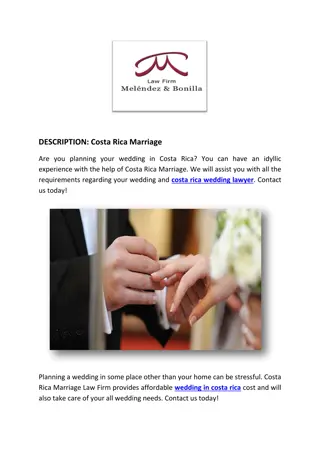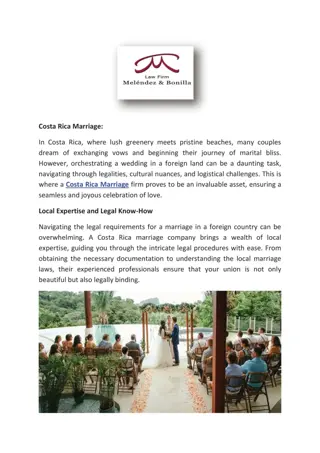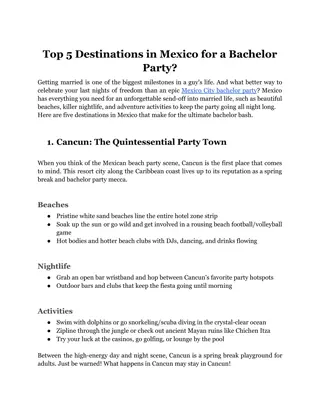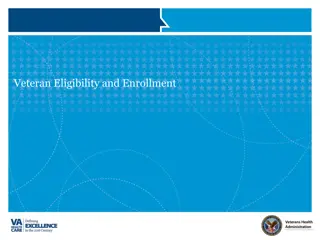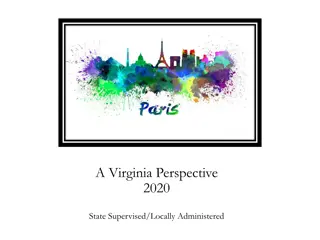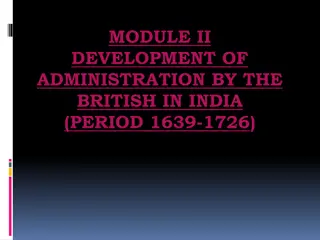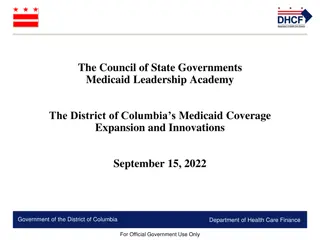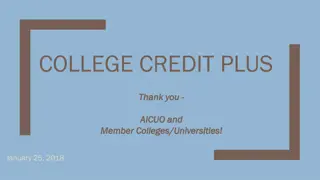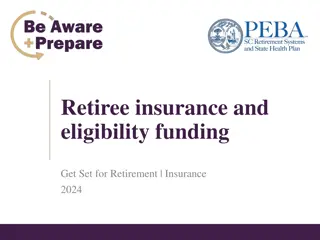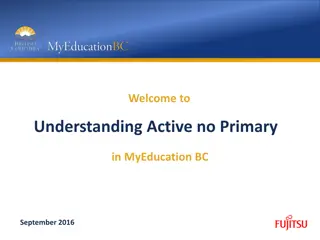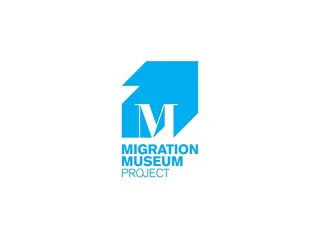Getting Married in British Columbia: Eligibility and Process
Learn about getting married in British Columbia, including eligibility requirements, applying for a marriage license, necessary documentation, restrictions based on age and past marriages, arranging the marriage ceremony, and registering the marriage with the Vital Statistics Agency.
Download Presentation

Please find below an Image/Link to download the presentation.
The content on the website is provided AS IS for your information and personal use only. It may not be sold, licensed, or shared on other websites without obtaining consent from the author.If you encounter any issues during the download, it is possible that the publisher has removed the file from their server.
You are allowed to download the files provided on this website for personal or commercial use, subject to the condition that they are used lawfully. All files are the property of their respective owners.
The content on the website is provided AS IS for your information and personal use only. It may not be sold, licensed, or shared on other websites without obtaining consent from the author.
E N D
Presentation Transcript
ARE YOU ELIGIBLE TO ARE YOU ELIGIBLE TO MARRY IN BC? MARRY IN BC? 0 You do not have to be a British Columbia resident to be married in the province. 0 You are required to get a Marriage License, require by the Marriage Act. 0 The license is valid for a term of three months and only in British Columbia.
APPLYING APPLYING FOR A MARRIAGE LICENSE MARRIAGE LICENSE 0 Only one member of the couple needs to apply in person for a marriage license. 0 The current fee for a Marriage License is $100.00 and must be paid at the time of application. 0 The marriage license is 0 issued at the time of application 0 non-refundable 0 valid for three months 0 may not be extended FOR A
Documentation 0 Applicants must provide identification for both parties in the form of: 0 birth certificate 0 Immigration form 0 Permanent Resident or Citizenship card which confirms 1) full legal names 2) birth date 3) place of birth 0 Without the above primary identification, the following documents can be substituted (in order of preference): 0 Driver's License 0 Passport 0 Credit Card 0 Bank Card 0 You will also be asked to provide information on: 0 current marital status 0address
Restrictions 0 Anyone over 19 years of age is eligible to apply for a marriage license in BC. 0 Anyone under 19 years of age must first obtain the consent of both parents. 0 No one under 16 years can be married without the consent of the Supreme Court. 0 If one or both individuals were recently divorced proof must be provided. 0 No license can be issued until the courts finalize a divorce, normally 31 days after the divorce is issued by the Courts.
ARRANGING ARRANGING THE MARRIAGE CEREMONY MARRIAGE CEREMONY 0 In British Columbia, couples can choose to have a religious or civil ceremony, both of which must be witnessed by two people. 0 A religious ceremony requires a religious representative who must be registered with the Vital Statistics Agency, under the Marriage Act. 0 In BC, a civil ceremony is performed by a marriage commissioner, who must also be registered with Vital Statistics. THE
REGISTERING REGISTERING THE MARRIAGE MARRIAGE THE 0The marriage commissioner or religious representative who will perform the wedding ceremony will help complete the Marriage Registration Form. 0Within 48 hours of the wedding ceremony, the form will be sent to the Vital Statistics Agency, where the marriage will be registered and a legal record will be kept.
PROOF OF PROOF OF MARRIAGE MARRIAGE 0At the time of the ceremony, your marriage commissioner or religious representative may provide a statement of marriage, which can be used temporarily as proof of marriage. However, it is not a legal document. 0You will receive a legal Marriage Certificate from the Vital Statistics Agency after the registration of the marriage.
CHANGING YOUR NAME CHANGING YOUR NAME 0 After marriage, you gain the right to use your spouse's surname or you can continue to use your own surname. 0 Changing to your spouse s surname does not require a legal change of name (example: the name on your birth certificate would remain the same) or any automatic change to your identification records (you must submit a copy of your Marriage Certificate to have your current documents changed) 0If you choose to use a hyphenated surname, a legal change of name is required.
http://t0.gstatic.com/images?q=tbn:ANd9GcTCZigPIzzc0QyRRlxMAPQBCq0u4_n9Gyj4qLCdj-dmQwZDxJXU2ghttp://t0.gstatic.com/images?q=tbn:ANd9GcTCZigPIzzc0QyRRlxMAPQBCq0u4_n9Gyj4qLCdj-dmQwZDxJXU2g
THE DIVORCE ACT Under the Divorce Act, marriage breakdown is the only admissible ground for divorce. By law, a marriage has broken down if: 0 you and your spouse have lived apart for one year and have decided your marriage has ended (you may begin divorce proceedings at any time after you have separated, but one year must elapse before a judge can grant a Divorce Order); or 0 your spouse has committed adultery (sexual intercourse with someone other than you); or 0 your spouse has been physically and/or mentally cruel to you If your situation qualifies as marriage breakdown, and either you or your spouse has resided in British Columbia for the past year, you may apply for a divorce in this province.
Two Types of Divorce: Two Types of Divorce: 1. Joint Action 2. Sole Action 0 Undefended 0 Defended http://t1.gstatic.com/images?q=tbn:ANd9GcSw6oIs_ndTA9srU-c5tRb5gHZLckpUj8RA23dcv_ps_IMT_GDb
JOINT ACTION Both parties agree 0If you and your spouse agree to divorce, you may file for a Joint Divorce Order. 0To file, both spouses must be in agreement on all details including custody, access and support, and both spouses must sign a Writ of Summons and Statement of Claim.
SOLE ACTION Only one spouse is requesting the divorce Undefended Divorce 0 An undefended divorce is where one spouse is asking the other spouse for a divorce and the defendant does not dispute any of the details of the divorce, such as custody, access, or support. Defended Divorce 0 A defended divorce is where one spouse is asking the other spouse for a divorce and the defendant has disputed either the details of the divorce or the divorce itself.
Do Do- -it it- -yourself Divorce yourself Divorce 0The Divorce Act makes it possible for many married couples in Canada to handle divorce proceedings themselves, without hiring lawyers to act on their behalf. 0 If you are doing your own divorce and your spouse disputes the details, you should consider seeking legal advice
Processing a Divorce 0 Processing time of a divorce application depends on the complexity of the case as well as when clearance is received from the Central Divorce Registry in Ottawa. 0 Processing can take two to five months from start to finish, but may take longer. 0 If the judge determines that parties are entitled to a divorce, she or he will grant a divorce order. 0 The divorce is automatically finalized 31 days after the divorce order is granted if no appeal is filed.
LEGALITY 0 By law, without the existence of a pre-nuptial agreement, all asset and debt growth within the relationship are considered to belong to both parties. 0 This includes: 0 Property 0 Pension 0 Finances 0 Debt 0 Vehicles 0 and more
COMMON LAW 0 The term COMMON LAW recognized unions created by mutual agreement and public behavior, not by a civil or religious ceremony or official documentation 0 To be considered common law, you have to prove you have been living with your partner for at least 12 consecutive months in a relationship like a marriage. 0 Although a couple is considered to be common law after only 12 months of living together, most laws relating to division of assets and/or debts do not apply until having lived common law for two years 0 The existence of children causes an exception to the two year rule.





